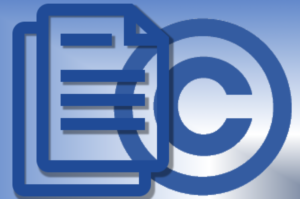Copyright, Content, & Control: Student Authorship Across Educational Technology Platforms
 There is no longer any doubt about whether the field has been paying attention to “the question of who owns language” (Lunsford & West, p. 383). Today, a vast trove of IP scholarship exists within disciplinary coffers, ranging from issues of textual circulation (e.g., DeVoss & Porter, 2006; Edwards, 2018; Gries, 2015; Ridolfo & DeVoss, 2009) and plagiarism (e.g., DeVoss & Rosati, 2002; Howard, 1999; 2007; Johnson-Eilola & Selber, 2007; Vie, 2013) to ownership (e.g., Amidon & Reyman, 2015; Barlow, 2015; Lunsford, 1999; Reyman, 2010; Sidler & Wickman, 2015) and cultural appropriation (e.g., Banks, 2011; Haas, 2012; Rios & Johnson Sackey, 2015; Sano-Franchini, Tasaka, & Ledbetter, 2015). Moreover, a robust strand of work in this area has explored how legal statutes, such as those portions of copyright law that respectively deal with fair use and work-for-hire, influence literate practice in academic and civic contexts (e.g., Galin, 2011; Galin & Latchaw, 2010; Herrington, 1999a; 1999b; 2003; Lee, 2009; Reyman, 2006; Rife, 2007, 2009; Vee, 2010). The rise and proliferation of digitally networked composing has exerted considerable stress on legal and theoretical conceptions of authorship, prompting scholars in writing studies and digital rhetoric to revisit deeply held ideas about the relationships of textuality, ownership, privacy, and human agency.
There is no longer any doubt about whether the field has been paying attention to “the question of who owns language” (Lunsford & West, p. 383). Today, a vast trove of IP scholarship exists within disciplinary coffers, ranging from issues of textual circulation (e.g., DeVoss & Porter, 2006; Edwards, 2018; Gries, 2015; Ridolfo & DeVoss, 2009) and plagiarism (e.g., DeVoss & Rosati, 2002; Howard, 1999; 2007; Johnson-Eilola & Selber, 2007; Vie, 2013) to ownership (e.g., Amidon & Reyman, 2015; Barlow, 2015; Lunsford, 1999; Reyman, 2010; Sidler & Wickman, 2015) and cultural appropriation (e.g., Banks, 2011; Haas, 2012; Rios & Johnson Sackey, 2015; Sano-Franchini, Tasaka, & Ledbetter, 2015). Moreover, a robust strand of work in this area has explored how legal statutes, such as those portions of copyright law that respectively deal with fair use and work-for-hire, influence literate practice in academic and civic contexts (e.g., Galin, 2011; Galin & Latchaw, 2010; Herrington, 1999a; 1999b; 2003; Lee, 2009; Reyman, 2006; Rife, 2007, 2009; Vee, 2010). The rise and proliferation of digitally networked composing has exerted considerable stress on legal and theoretical conceptions of authorship, prompting scholars in writing studies and digital rhetoric to revisit deeply held ideas about the relationships of textuality, ownership, privacy, and human agency.







